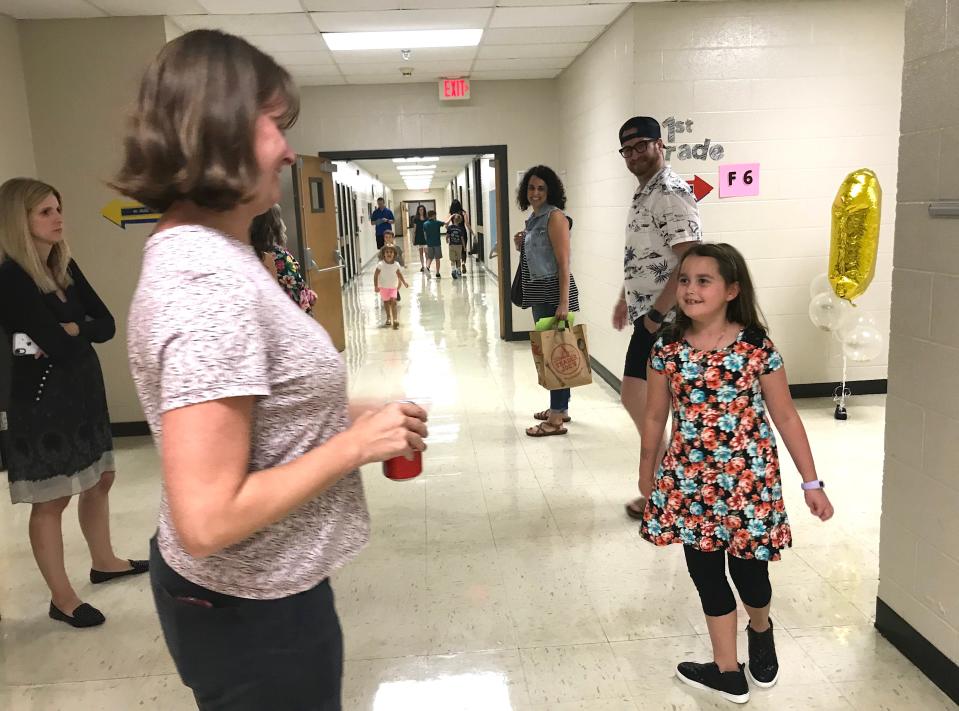Fear won't make Tennessee third graders want to be better readers | Opinion
“Do they think they’re going to scare third-graders into learning to read?”
My wife had just finished summer school day one, teaching third-graders who might or might not be starting fourth grade come August, and her question snapped things into focus for me.
Because of a new law, about 44,000 Tennessee third-graders might repeat third grade, based on standardized TCAP test results, along with a dizzying array of last-minute requirements, exemptions, additional tests, and options to appeal.
It’s more of what we’ve heard for 20-plus years.
No Child Left Behind: Test schools. Hold them accountable. Maybe close the worst. How will they get better? They’ll figure that out once we put their feet to the fire.
Teacher evaluation: Hold teachers accountable for test scores. Maybe fire the worst. How will they get better? Er, something, something “feedback.”
Hear more Tennessee Voices: Get the weekly opinion newsletter for insightful and thought provoking columns.
We can and must do better
Now shift the target to students. It’s not fair to just pass kids on if they can’t read, so… hold them accountable. How will they get better? Um … unclear.

We do have a problem. Two thirds of students are unable to perform proficiently on standardized reading tests and 34% of young people do not go to college, according to Intelligent.com. A study by The New Teacher Project (TNTP) documented the widespread practice of teachers assigning below-grade-level work. Parents and kids: “How was school, honey?” “Borrrrree-ing.”
We can and we certainly must do better. But the problem can’t be fixed with fear.
Teachers got into the profession to help kids learn. It’s the psychic and emotional benefit that attracts and keeps teachers. It’s not the money.
Plus, if you believe there are large numbers of teachers who could do a better job but just choose not to, then you haven’t tried to make it through fifth period when you showed up poorly prepared.
Sign up for Latino Tennessee Voices newsletter:Read compelling stories for and with the Latino community in Tennessee.
How to look at the whole picture
Teaching is hard. And it’s even harder when you’re not good at it. Teachers want to do well because they are decent people who want to help kids learn. Teachers want to do well because the job is a lot more enjoyable, and easier, when kids are succeeding rather than bored or misbehaving.
Kids are born curious. If you believe there are large numbers of children who truly don’t care about learning, then you need to get to know those children better. And if you believe that students ought to be threatened so they’ll try harder, you probably haven’t spent much time working with scared children.
Instead, we ought to look clearly at the whole picture.
Teachers aren’t superheroes. Only a few are consistently transformational and inspiring. Kids aren’t perfect. Only a few consistently push themselves to learn.
Think about what intrinsic motivations offset the natural human urge to not push too hard.
The most natural motivator might not be right in front of us. But it is just down the hall. Our peers. No fourth-grade teacher wants to get a crop of new students who spent third grade slacking off.
Instead of convoluted assessments and evaluations, give teachers time to evaluate other teachers’ students’ work and give feedback to make sure everyone pulls his weight toward our shared goals.
Sign up for Black Tennessee Voices newsletter:Read compelling columns by Black writers from across Tennessee.
Here are some solutions to consider
Instead of threatening schools with closure, partner them with peer schools. Develop joint measures mandating that staff take ownership for the performance of their own and their sister school(s).

Instead of menacing 9-year-olds with retention, involve all students in cross-school performance assessments such as pen pals, math decathlons, science Olympiads, music recitals, theater performances, and writing contests that require students to assess their own work in relation to that of their peers and to agreed-upon standards of excellence. Instead of fear and finger-pointing, let’s try thinking and working together.
Maybe we’ll look to learn from one another instead of looking over our shoulders in fear.
Kevin Schaaf, Ph,D., teaches reading to Kindergarten through fourth grade students at Haywood Elementary in Metro Nashville Public Schools. He is the former director of research and evaluation at the Tennessee Department of Education.
This article originally appeared on Nashville Tennessean: Fear won't make Tennessee third graders want to be better readers

